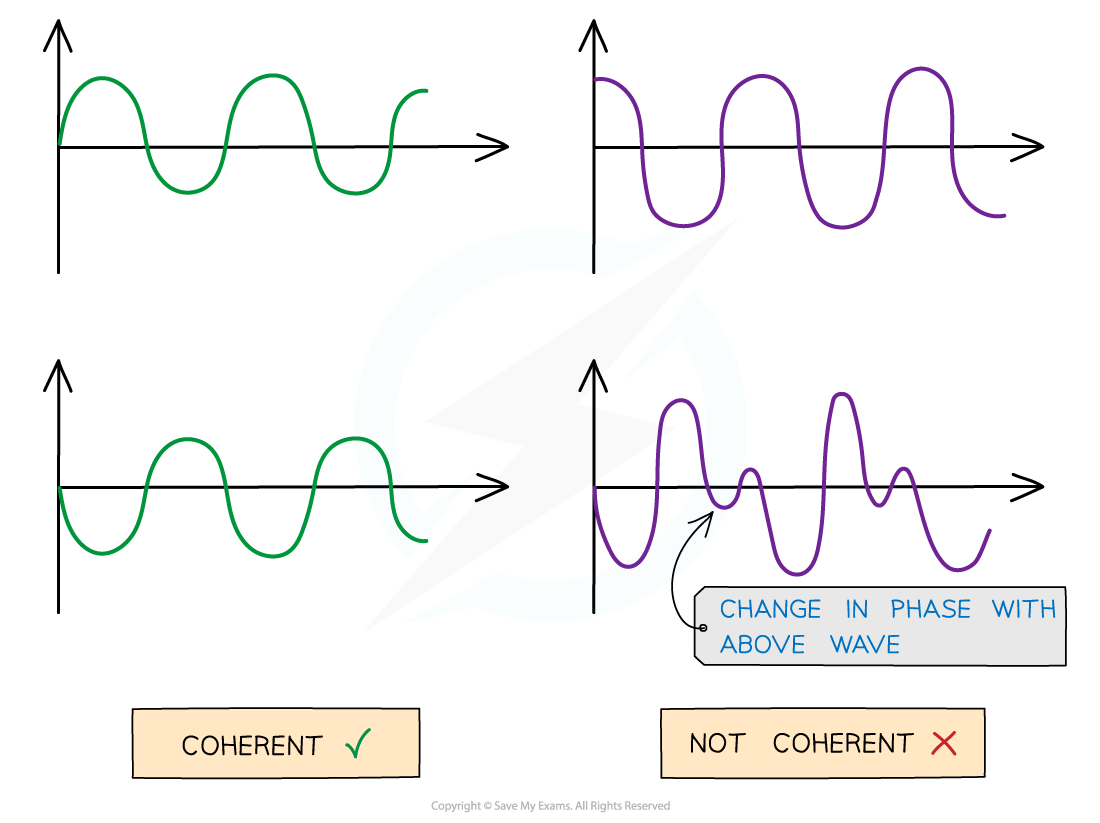Interference & Superposition of Waves (Edexcel International AS Physics): Revision Note
Exam code: XPH11
Interference & Superposition of Waves
Interference occurs whenever two or more waves combine to produce a resultant wave with a new amplitude
Superposition literally means to be positioned over something
When waves interfere and combine, they do so according to the principle of superposition
If two wavefronts are travelling towards each other they will combine by superposition and then pass through
The wavefronts will emerge unchanged on the other side

Interference due to superposition can be constructive or destructive
Constructive interference happens when the resultant wave has a larger amplitude than any of the individual waves
Destructive interference happens when the resultant wave has a smaller amplitude than the individual waves
Coherence
Interference is only observable if produced by a coherent source
Waves are said to be coherent if they have:
A constant phase difference
The same frequency

Coherent waves (on the left) and non-coherent waves (on the right). The abrupt change in phase creates an inconsistent phase difference
For example, in light, a coherent beam of light contains light waves that are monochromatic and have a constant phase difference
Monochromatic light consists of light waves of a single frequency
Laser light is an example of a coherent light source
Filament lamps produce incoherent light waves
Examiner Tips and Tricks
It can sometimes be tricky to identify whether constructive or destructive interference is taking place. If two waves meet at the same point on each wave e.g. two crests then the interference will be constructive, if not it will be destructive.

Unlock more, it's free!
Did this page help you?